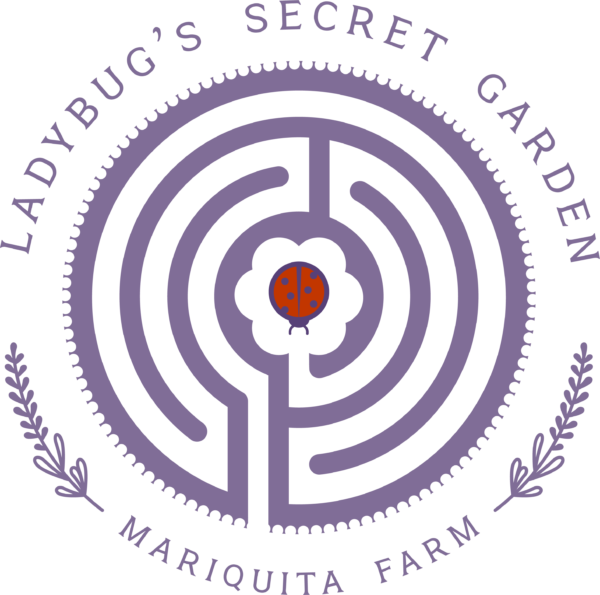Truck Farm
Hi Everybody: What can I say? It’s been a difficult and busy year and it hasn’t been easy to find the time to write, but life is smoothing out a bit and Julia and I are looking forward to getting our Ladybug Letter out on a regular basis again. The summer was unusually cool- until it became unusually hot- and summer crops were later, lighter, and less successful than I’d hoped, but, looking on the bright side, we were able to get a series of late fall and winter crops in on time and they look beautiful. We are planning a series of “Ladybug Truck Farm deliveries” this fall and winter so this essay about truck farming that I wrote this summer seemed an appropriate story to kick off our renewed effort at the Ladybug Letter. Thanks, Andy
Truck Farm
The office at Organic Matters was scuffed and drab. Dorothy managed the company. She had a caustic wit she kept her attitude tamped down in an effort at professional courtesy. Russell was slouching against the counter. He drove the bobtail delivery truck for OM. Russell had that rock band roadie look; black Jack Daniels T shirt, pony tail, mirrored shades, blurry tattoos and a cigarette. He’d gotten the job through a government program that subsidized employers who were willing to take a chance and hire people who were on parole, but lately Russell had been in a series of confrontations with OM’s customers. Organic Matters distributed fresh organic produce to a string of natural food stores and juice bars from Monterey to San Francisco, little hippie joints that smelled of incense like McDharma’s, Sunflower Natural, and Community Foods. I worked in the refrigerated warehouse as a forklift driver. Dorothy had kept her license to drive big rigs current, but she was in no mood to get back behind the wheel. It was time for a serious talk with Russell.
“So what I’m hearing you say, Russ, is that you don’t really like driving.”
“Wrong again, honey,” Russell replied. “I love driving— I just hate to stop!”
“That’s sad,” said Dorothy, “because the ‘stops’ are what produce delivery is all about.”
So I got a battlefield promotion that afternoon out of the cold box and up into the cab. I could sympathize with Russell’s attitude though. When I’d first gone to work on farms I’d been attracted to the notion of being out in a field, far from any peering, poking supervisors. A life in the dirt with the wind and the weeds seemed like an even trade for “freedom.”
But farmers have to make money just like anybody else. I was legal and I didn’t have any DUIs, so it was inevitable that I’d end up driving the farmers’ delivery trucks. I was fine with that at first. Driving has its own romance. I liked the idea of rolling across the green San Joaquin past corn fields and alfalfa, watching the dairy cows in their pastures give way to range cattle, seeing the oak trees fade into pine forests, then revving up the engine to crest the Sierras before gearing down for the long descent into Nevada and the Great Basin, freewheeling with all the wild west out ahead of me and the boss no more than a speck in the rear view mirror.
In the early eighties I worked five years at Star Route Farm in Bolinas, and I drove the produce truck down Highway One to San Francisco. But the coast highway is all curves and cliffs and majestic ocean vistas, so I needed to concentrate on the white lines to avoid ending up in the drink. And then there was driving in the City; getting dogged by meter maids, dodging taxis and bike messengers, breathing bus exhaust. One day there was a traffic accident half a block ahead of me on Stockton Street and I had to back the truck down hill through Chinatown while the crowds swarmed around me. The truck was a manual transmission that you needed to double clutch– not an easy truck to drive in downtown traffic! Every time I let out the clutch and slipped into reverse somebody would step behind me and I’d have to stop. Eventually a cop helped me by swatting pedestrians out of my way, but by the time I rolled backwards into Columbus Avenue my right leg was so stressed it was as stiff as rebar. I double parked in front a brew pub, switched on the flashers as if I was making a delivery, and limped inside for a beer.
“What am I doing here?” I asked myself. “I got into farming because I wanted to be in a field with the birds and the bees and now I’m running with the busses in the shadow of the Transamerica Pyramid?”
Stops! I was making stops. But I didn’t want “stop,” so I quit.
I worked on other farms down in Santa Barbara County, Monterey County and in Santa Cruz County. At every farm I ended up making stops. It slowly sank into my skull that if the stops stop, the farm stops.
The seventies, eighties and nineties were interesting years to be in organic farming. At first, little organic farms could sell anything they grew to the little organic food stores. Then the farms grew and multiplied, and the stores grew and multiplied. There were more stops. Then the bigger stores started to gobble up the smaller stores. When I was working at Organic Matters in the late 80s the bigger produce distributors began gobbling up the smaller ones. I got back into farming as a partner with another farmer. Then the littlest farms began to fail and the biggest farms began to gobble up the medium farms. Then the biggest chains began to gobble up the smaller chains which meant even bigger sales for the huge farms but even fewer stops for the little farms. The buying public benefited, I guess; there was a general trend towards more access to organic food for more consumers.
I was a partner at Riverside Farms in the Pajaro Valley in 1997 when we sold out to the company that became Natural Selections, America’s largest organic grower/packer/shipper. I wonder now if the Darwinian tone to their name was intentional, but I was happy to sign a non-competition agreement and Julia and I got enough money to start our own little farm. Julia and I didn’t even want to “compete” with Natural Selections. We farmed using a new business model; community supported agriculture, CSA, where a group of people support a farm and the farm supports the people.
I was thinking about all this the other day because my CSA route driver had asked for the day off and I was covering his route through San Francisco. I rolled into the City on 19th and down the foggy streets of the Sunset, through Golden Gate Park into the outer Richmond, then the Inner Richmond and up into the Haight , geared down for Masonic and over the hill into the sunny Castro with the rainbow flags flapping in the breeze, and all along I had stops, lots of stops; on to Soma, the Mission, Noe Valley, Glen Park. Every stop made me feel good. I know what I’m doing here now and I can remember all the other farmers who gave up or went broke. I want to stay in field on my farm with the birds and the bees and the wind and the weeds and I’ve learned that the City is the other half of my life’s equation. I’m grateful for all the people who’ve chosen to support my farm, especially the people who lend us their homes and businesses so that we can make our stops. Freewheeling across Nevada is a fantasy, but I’ll stick with the stop and go of small-scale vegetable farming; they don’t call small farms like mine “truck farms” for nothing.
Copyright 2010 Andy Griffin
Ladybug Truck Farm Deliveries This week = Thursday 10/21 from 4-6pm at Frances with just tomatoes: dry farmed early girls and romas… and Menlo Park that same day… and Pacific Grove on Wednesday 10/20. All by pre-order. If you’re interested in these and or future deliveries of bulk vegetables and fruits and mixed vegetable boxes, please make sure you’re signed up for your geographical area:
SF sign up || Peninsula/Palo Alto Sign up || Santa Cruz/Monterey Sign up
Andy is again writing every other week. (We are all glad he’s ‘back’!) We plan to continue to update this blog with the same articles that go out via email. There may be more announcement type things in the email version… but mostly it will be the same content. -Julia


